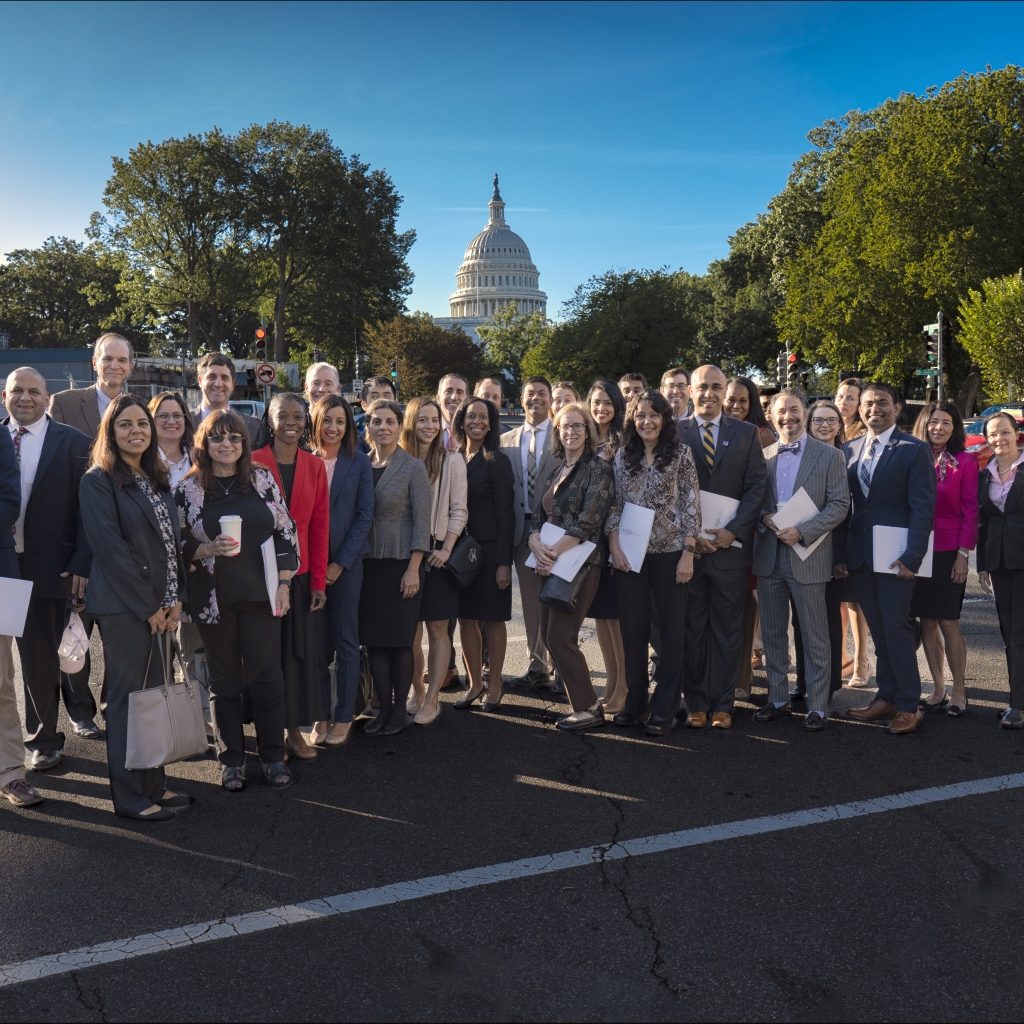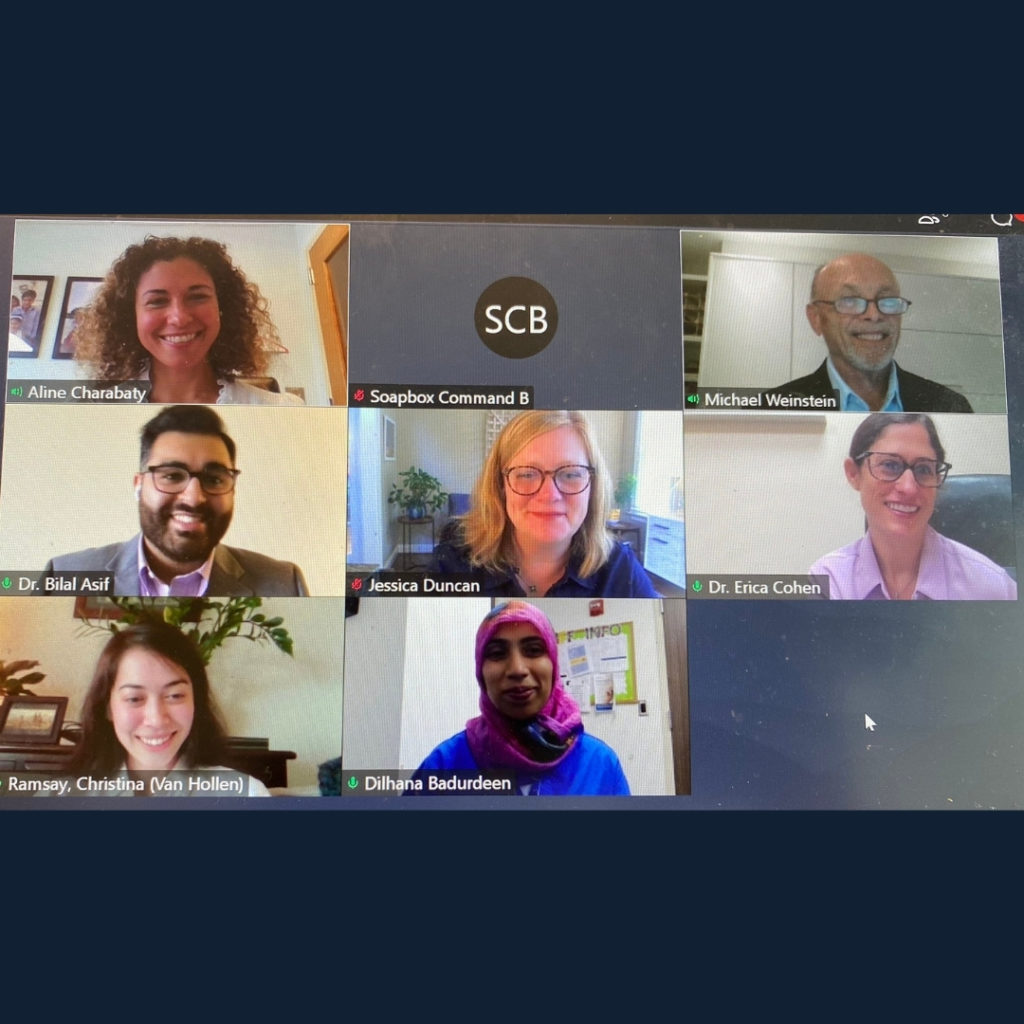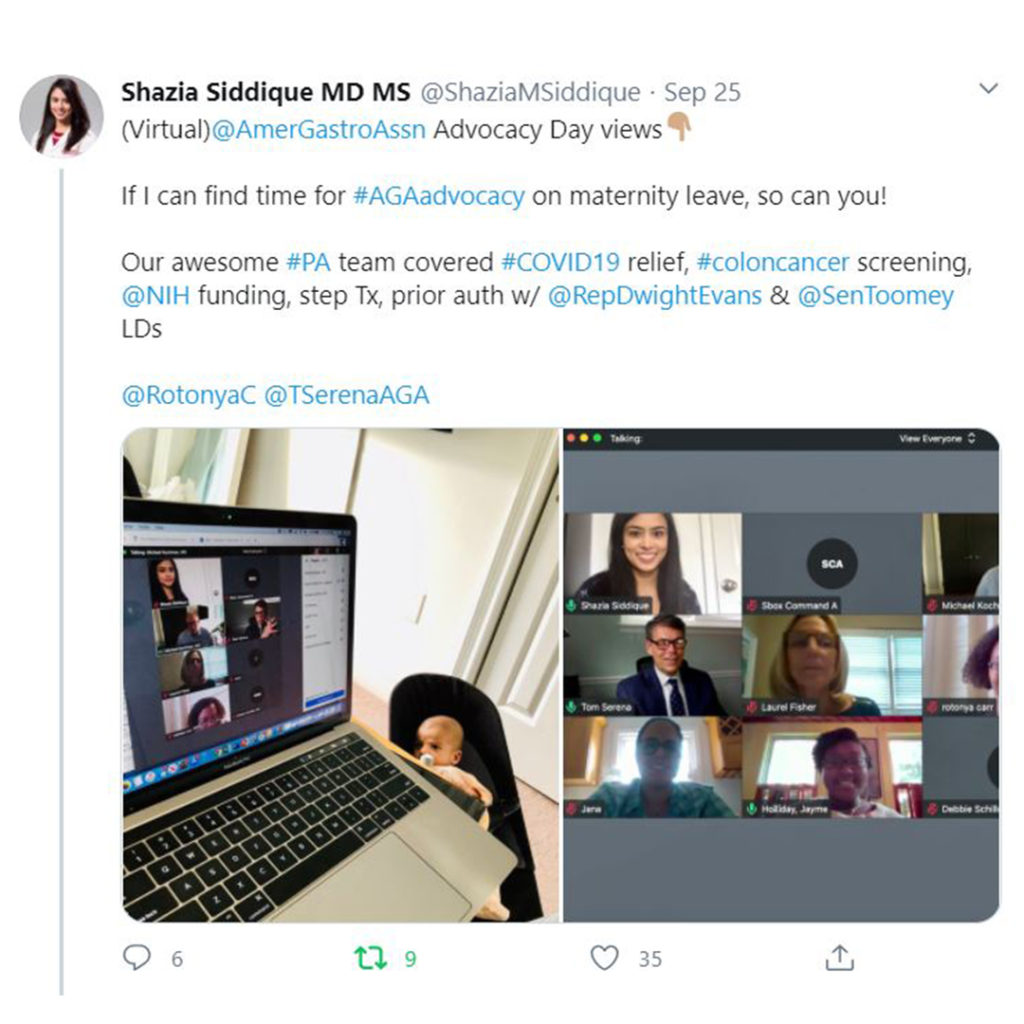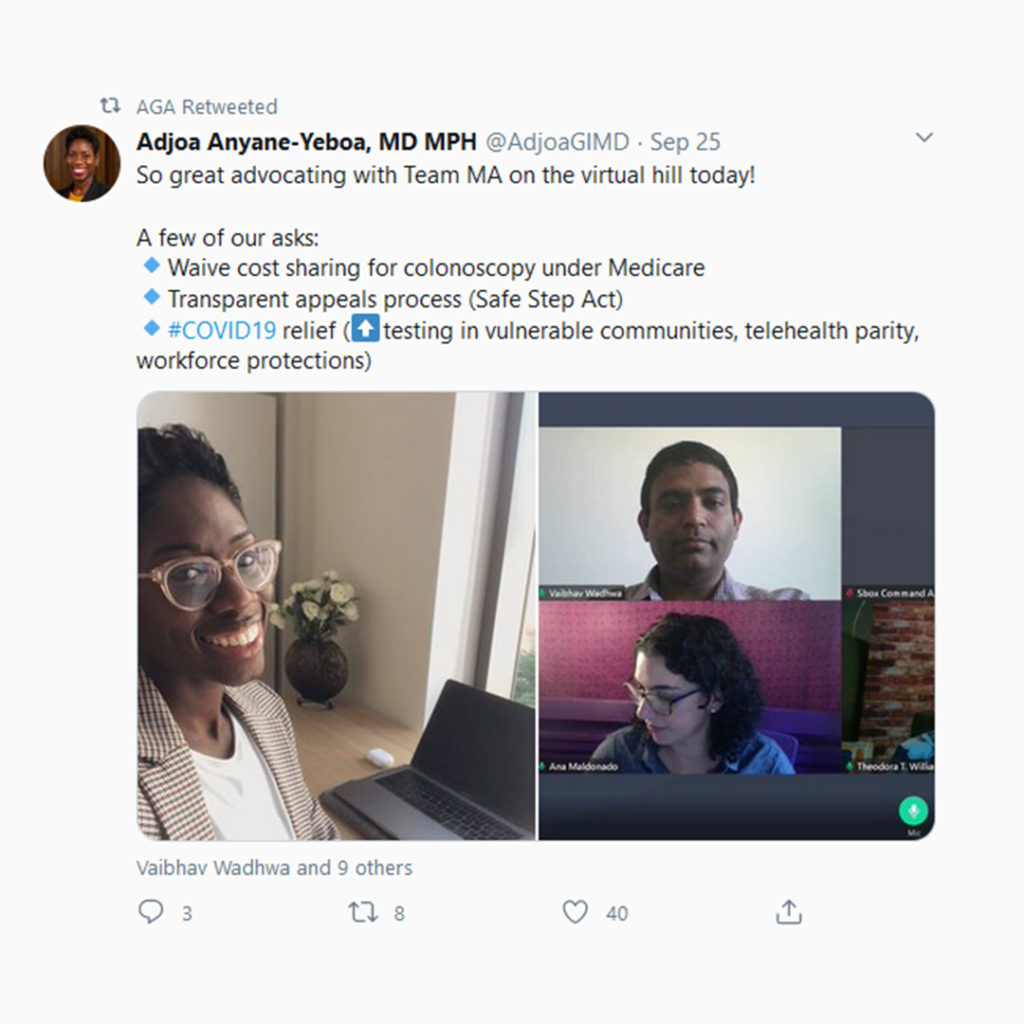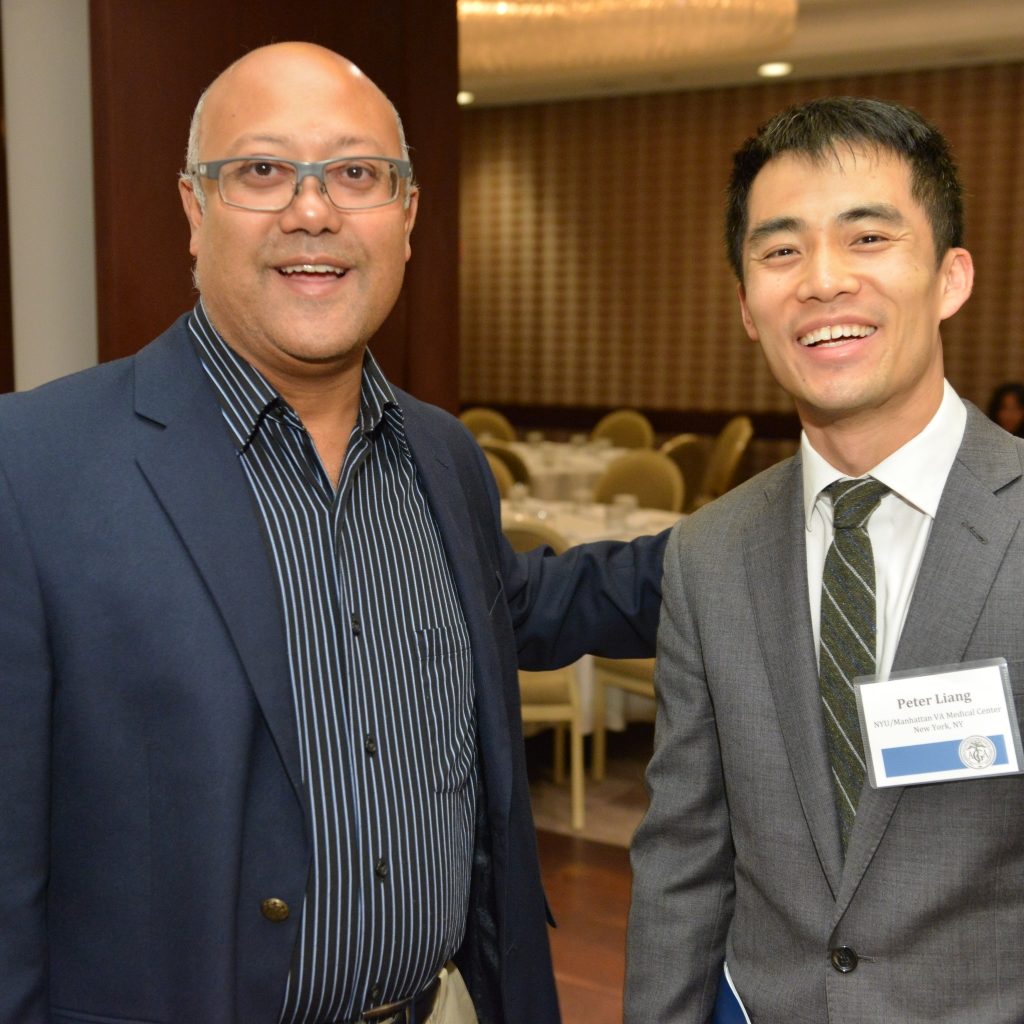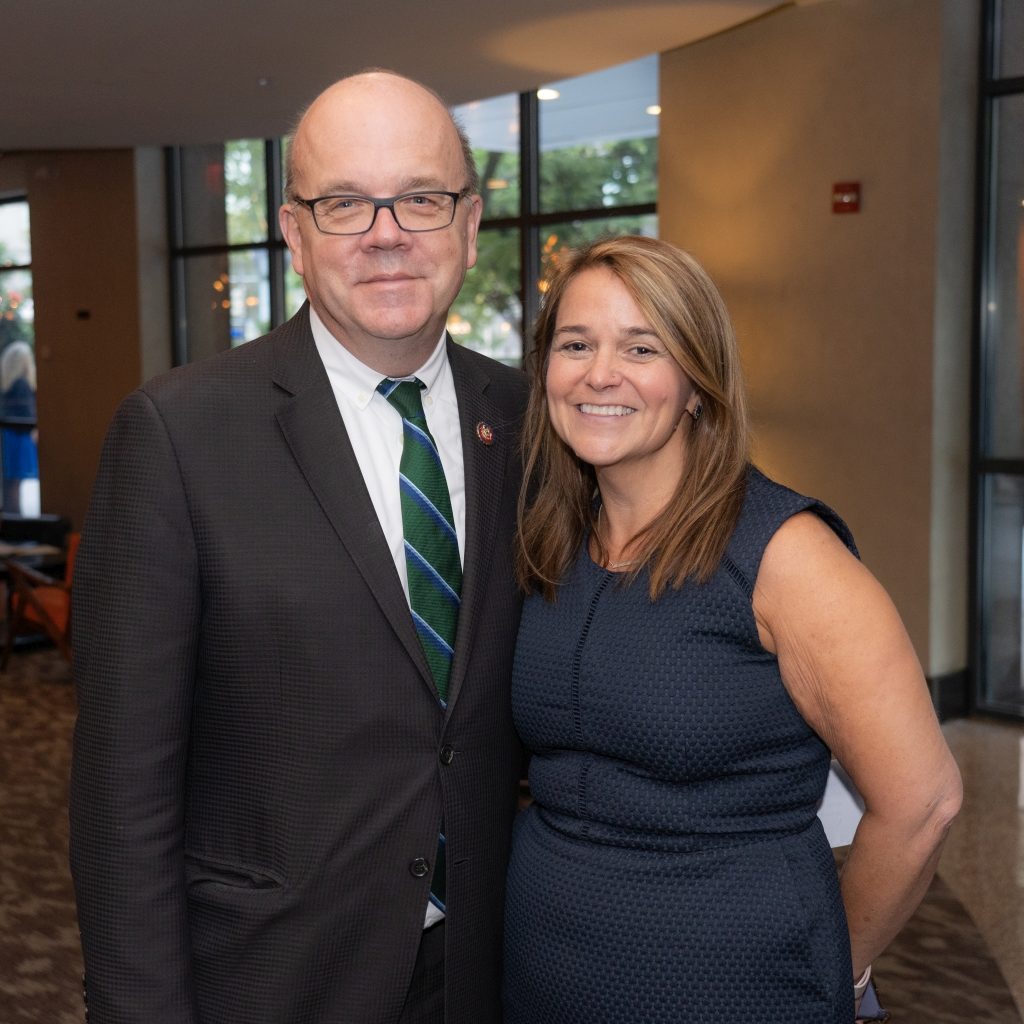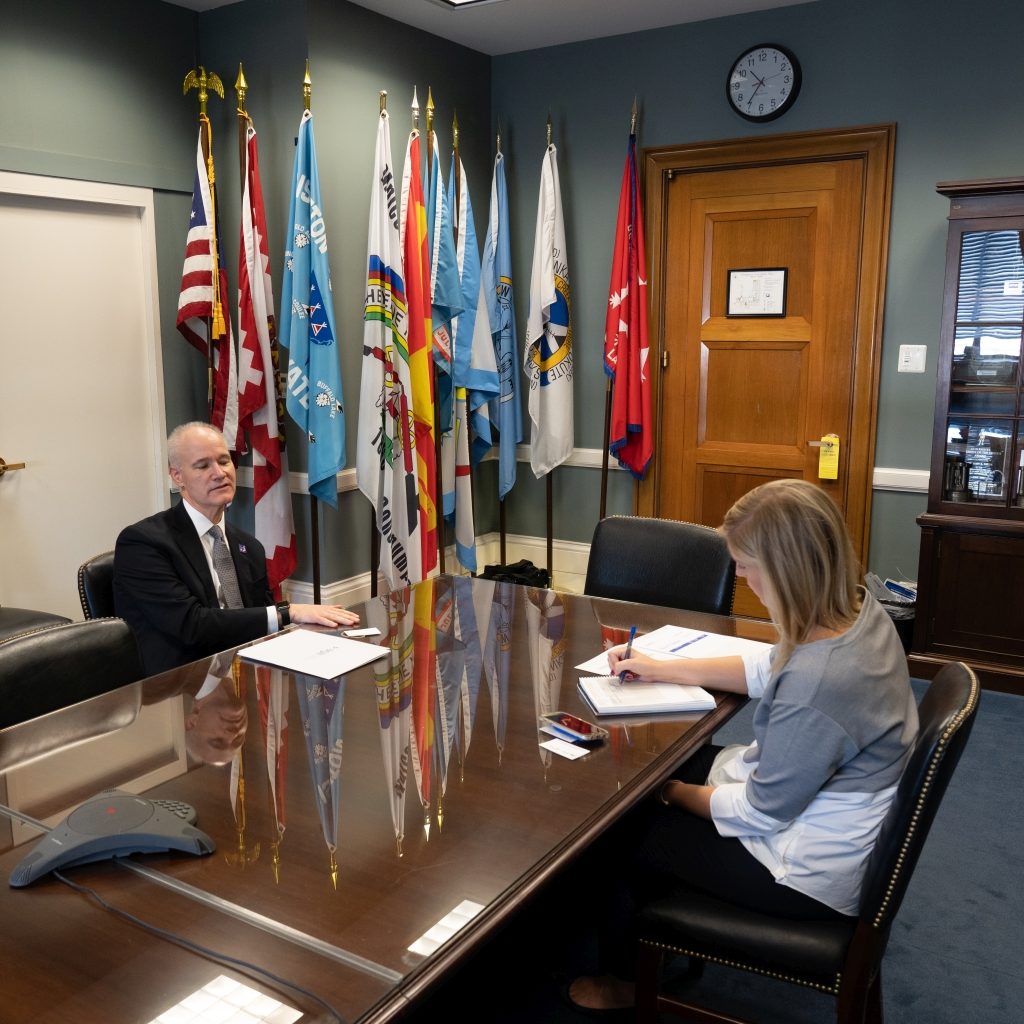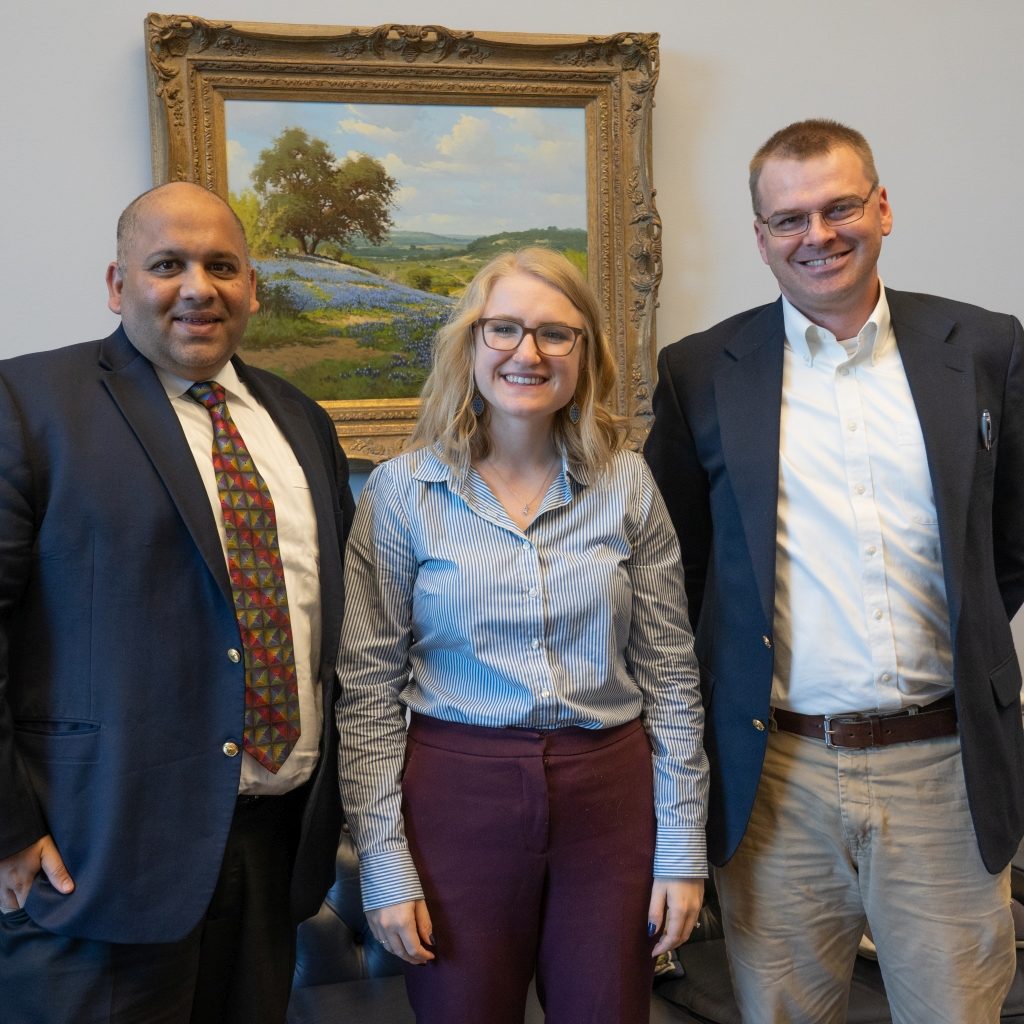Home > Advocacy & Policy > Get Involved > AGA Advocacy Day
AGA Advocacy Day
Advocacy is a critical component of protecting our profession and patients’ access to care. Thanks to our advocates’ efforts, AGA has obtained substantial wins for our members this Congress, including:
- Secured coverage of the CRC screening continuum.
- Expanded telehealth services.
- Prevented Medicare payment cuts.
- Eliminated colonoscopy cost-sharing.
- Secured language directing NIH to study CRC health disparities.
- Increased federal funding for GI research.
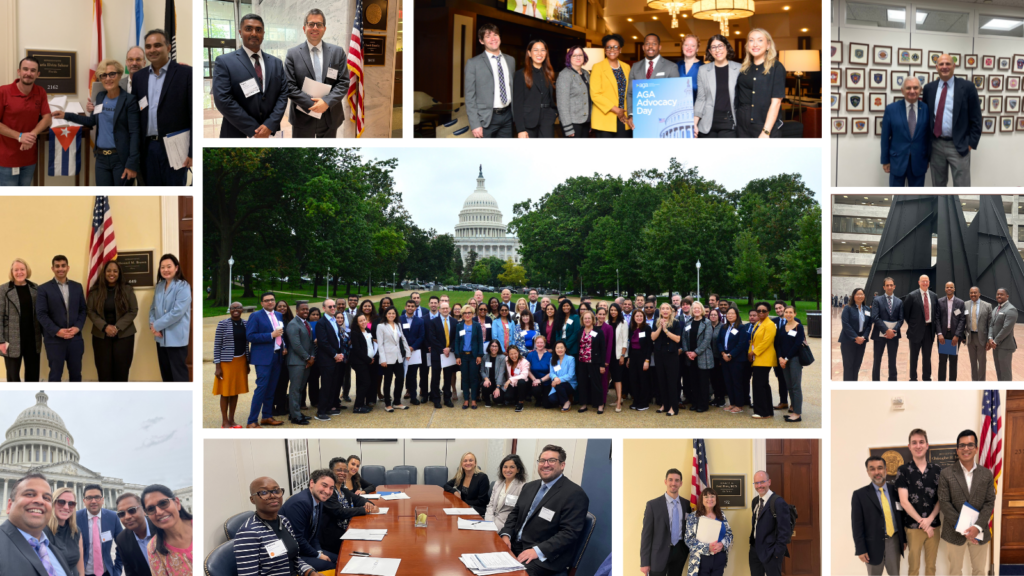
Celebrating another successful AGA Advocacy Day!
On Sept. 26, 2024, AGA held its annual Advocacy Day, bringing together more than 100 members and patient advocates from 28 total states to educate members of Congress and their staff about policies affecting GI patient care such as prior authorization, step therapy, federal research funding and Medicare reimbursement.
This marked an exciting milestone – AGA’s biggest turnout yet for Advocacy Day! Our members shared how health care policy impacts them in the clinic or lab and and how legislative and regulatory policies delay timely – and correctly prescribed – access to care for patients who need critical medical treatment for conditions such as inflammatory bowel disease (IBD).
Thank you to all who participated and spoke on the issues impacting your patients and practice. From step therapy reform to federal research funding, our advocates did an incredible job making their voices heard on Capitol Hill.
Time is running out and we need your help to urge your members of the 117th Congress to preserve the physician-patient relationship and reduce barriers to high quality care. GIs must have a seat at the table and engage with lawmakers. This is more important than ever as Congress and the Administration debate policies that will significantly impact the future of GI patient care, including prior authorization and step therapy reform. We need all AGA members to raise their voices to make the most impact!
Register for AGA Virtual Advocacy Day on Thursday, Sept. 22, 2022 and connect with your federal lawmakers and their staff to ensure our voice is heard on Capitol Hill.
First-time Advocacy Day participants are welcomed and encouraged!
We’ll provide all the tools and resources you need to feel confident while speaking with your legislators, including comprehensive live and on-demand training. Even if you can only join us for an hour or two, your participation matters. Just indicate your availability on the registration form and we’ll tailor meetings around your busy schedule.
There’s no need to be a policy expert either. All participants will receive an issue briefing prior to Advocacy Day, and each congressional meeting will be accompanied by an AGA staff member or experienced colleague to help lead the discussion. All we need is your passion for your patients and profession – YOUR voice matters.
Registration is free and includes access to all events on the schedule below, including an exciting update on the upcoming midterm elections with elections expert Nathan Gonzales from Inside Elections, which provides nonpartisan analysis of campaigns.
Policy priorities
We are calling on Congress to address the following priorities:
- Prior authorization reform
- Step therapy reform
- Stable and fair Medicare reimbursement
- Sustainable federal research funding for GI diseases and cancers
Schedule of events
Policy overview webinar
8-9:15 p.m. EDT
- AGA policy priorities overview
- Congressional update
- Effective Hill meetings training
- Congressional meeting logistics
Group training session
Time TBD: Scheduled by group leader
Wednesday, Sept. 21Hill Day
9 a.m.-4:30 p.m. EDT
- 9 a.m.-12 p.m.: Congressional meetings
- Noon-1 p.m.: Keynote with Inside Elections’ Nathan Gonzales
- 1-4 p.m.: Congressional meetings
- 4-4:30 p.m.: Advocacy Day debrief session
Additionally, we encourage you to brush up on your advocacy skills by exploring AGA’s education module on AGA University. Learn about how we engage with Capitol Hill and federal agencies, explore AGA town halls and read tips for effective policy communications and establishing a constituent relationship.
Past Advocacy Days



#AGAadvocacy
